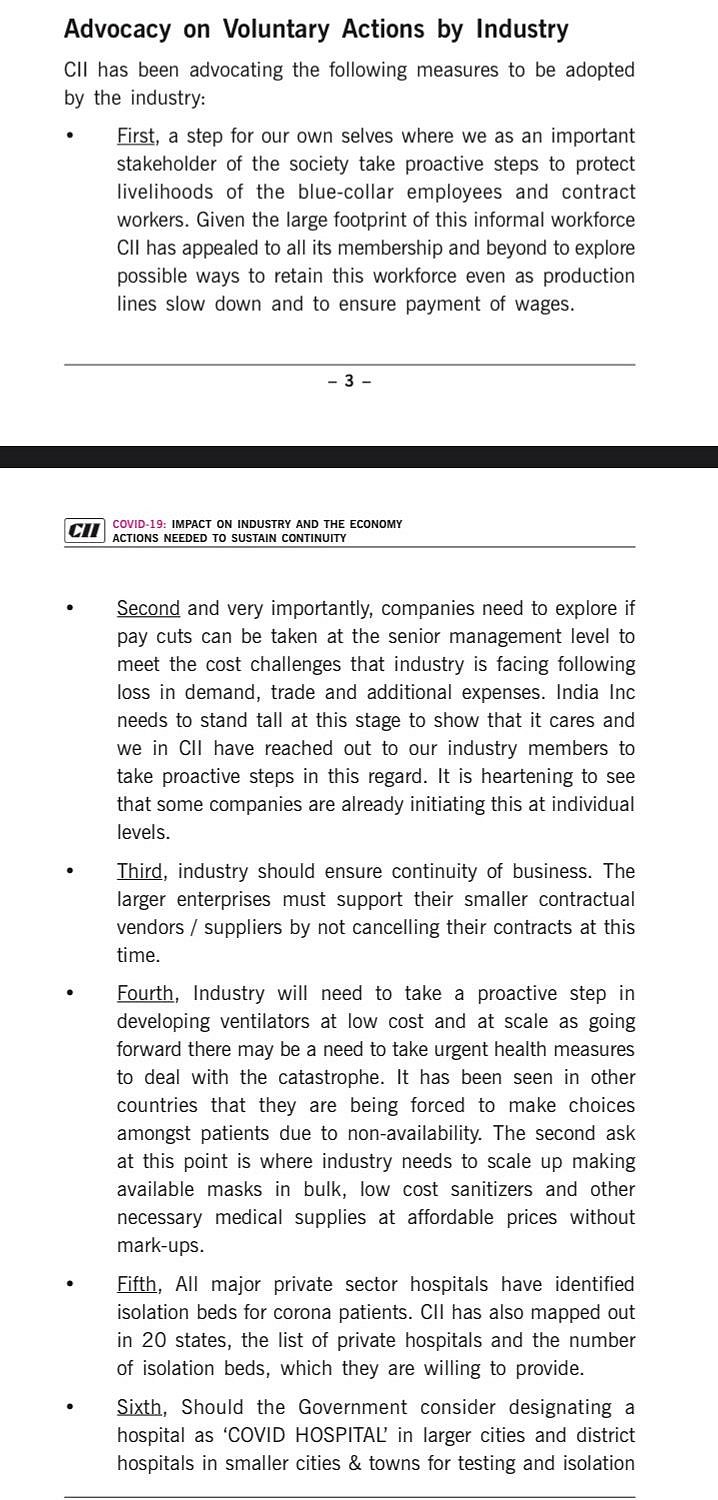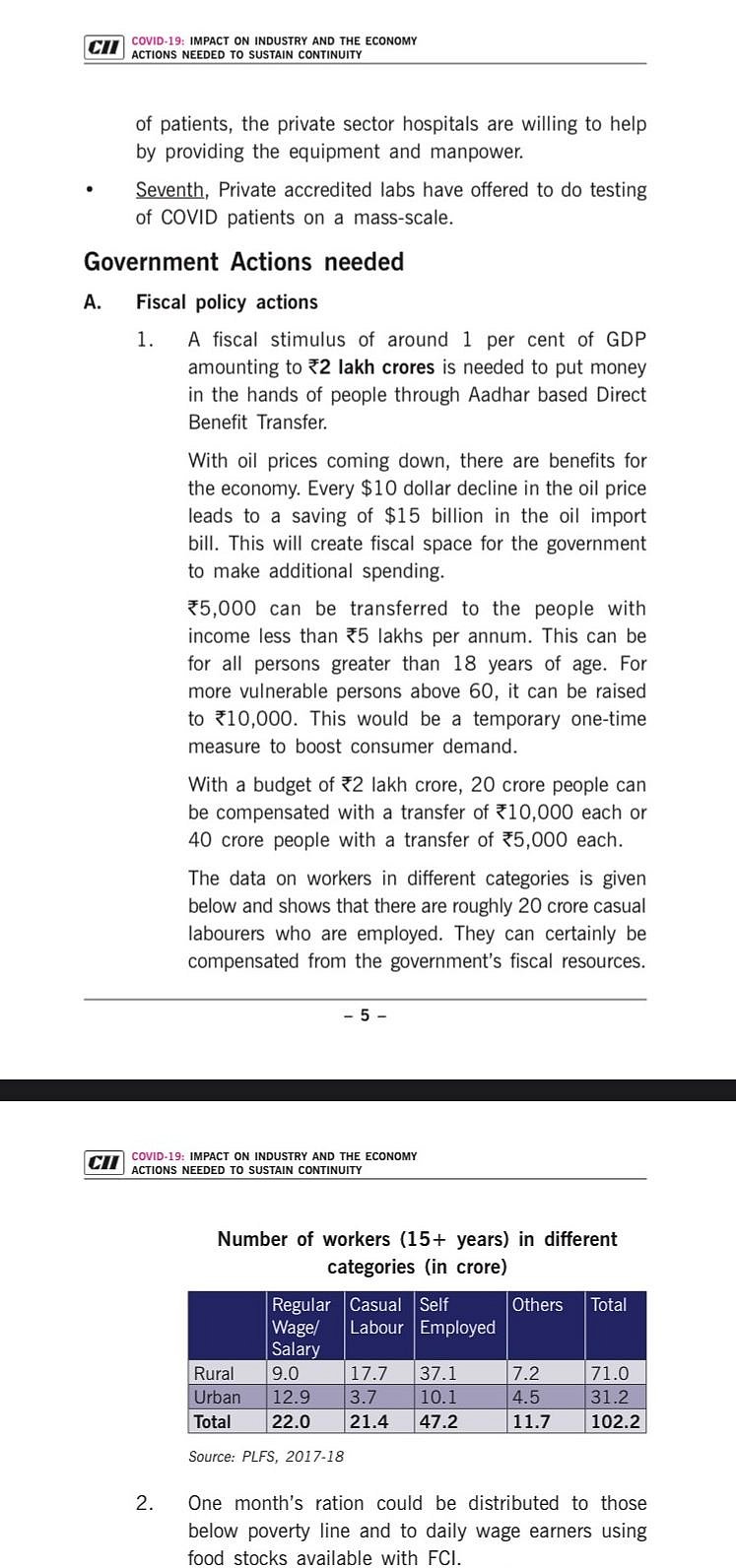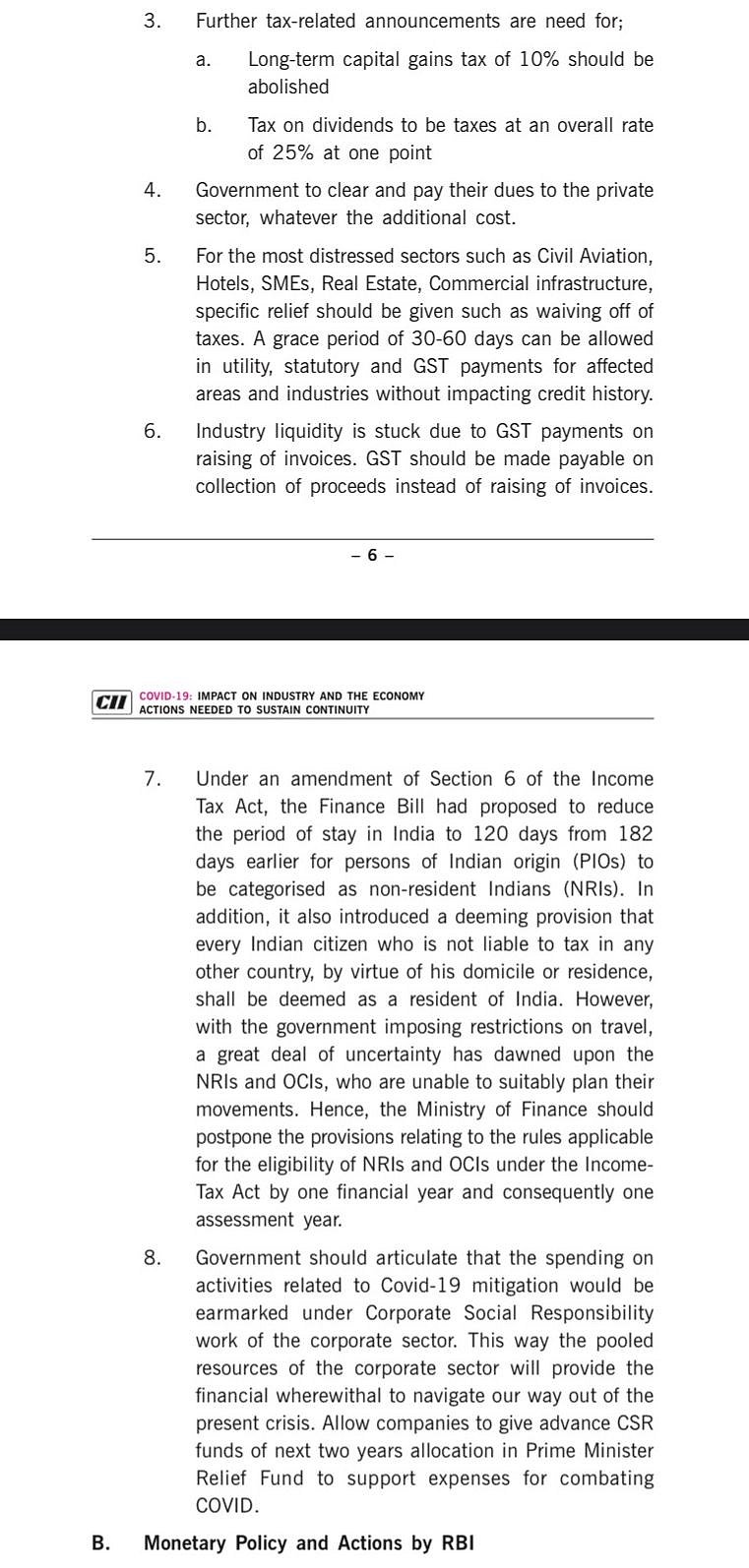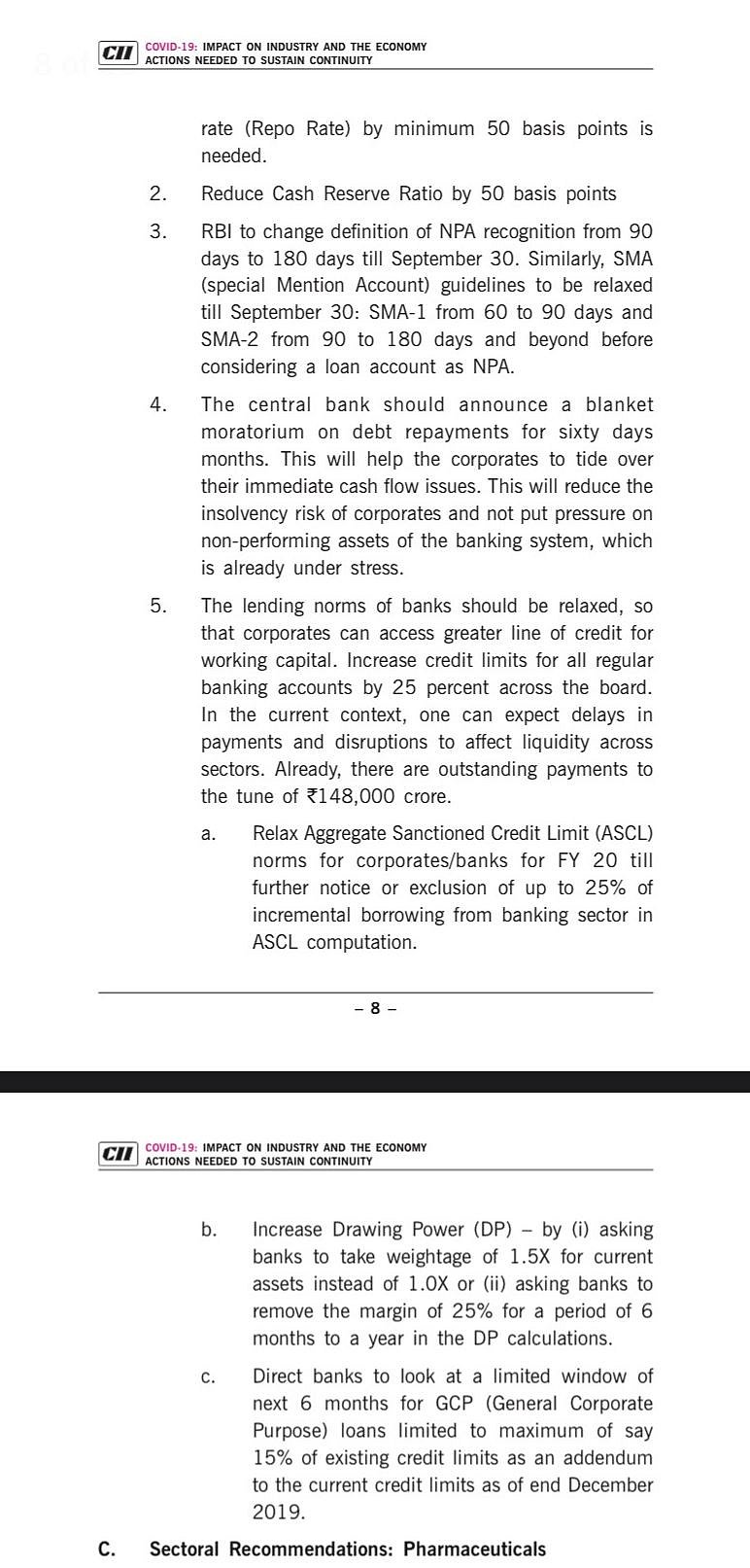COVID-19: CII suggests to PM Modi fiscal support scheme of ₹2 lakh cr to avert impending economic disaster
Time is ripe to implement India’s version of “Helicopter Drop” fiscal support scheme to avert an impending economic disaster due to the outbreak of COVID-19, industry body CII has written to PM Modi

Time is ripe to implement India's version of "Helicopter Drop" fiscal support scheme to avert an impending economic disaster due to the outbreak of COVID-19, with industry body CII suggesting direct cash transfer of ₹5,000 into the accounts of all adults with annual income of less than ₹5 lakh per annum.
It said that for more vulnerable persons above 60, the cash transfers could be raised to ₹10,000.
“ A fiscal stimulus of around 1 per cent of GDP amounting to `2 lakh crores is needed to put money in the hands of people through Aadhar based Direct Benefit Transfer. With oil prices coming down, there are benefits for the economy. Every $10 dollar decline in the oil price leads to a saving of $15 billion in the oil import bill. This will create fiscal space for the government to make additional spending. `5,000 can be transferred to the people with income less than `5 lakhs per annum. This can be for all persons greater than 18 years of age. For more vulnerable persons above 60, it can be raised to `10,000. This would be a temporary one-time measure to boost consumer demand. With a budget of `2 lakh crore, 20 crore people can be compensated with a transfer of `10,000 each or 40 crore people with a transfer of `5,000 each”, suggested the Confederation of Indian Industry (CII).
Important suggestions by the CII can be read here:
"This would be a temporary one-time measure to boost consumer demand," the industry chamber said in an action note on COVID-19 and its impact, industry and economy submitted to the Prime Ministers Office (PMO).
Though an old concept, Helicopter Drop was widely used in the 2008-09 economic crisis in the US. It entails providing a direct financial support to the public which can kick-start economic activity.
"With oil prices coming down, there are benefits for the economy. Every $10 dollar decline in the oil price leads to a saving of $15 billion in the oil import bill. This will create fiscal space for the government to make additional spending," the industry body said.
With a budget of ₹ 2 lakh crore, 20 crore people can be compensated with a transfer of ₹ 10,000 each or 40 crore people with a transfer of ₹ 5,000 each.
The Confederation of Indian Industry (CII) has said that as COVID-19 is expected to weaken growth impulses by acting through the trade and financial channels, expeditious policy redressal measures - both on fiscal and monetary front would be required. It is here that a fiscal stimulus of around 1 per cent of GDP, amounting to ₹2 lakh crore, would be required to put money in the hands of people through Aadhaar-based Direct Benefit Transfer.
With regard to money to support large cash transfer programme, CII has suggested that savings from low oil prices could be channelised for additional spending required to keep the wheels of economy moving and preventing depression to seat in.
The entire list of suggestions can be read here:
Industry estimates and labour force survey data indicates that there are roughly 20 crore casual labourers who are employed. These are the most vulnerable sections and among the first to be hit on account of economics crisis being triggered by COVID-19. "They can certainly be compensated from the government's fiscal resources," CII said.
With regard to other fiscal measures, the confederation has suggested that one month's ration could be distributed to those below poverty line and to daily wage earners using food stocks available with FCI.
Further, it said tax-related announcements are need for restoring the health of the markets. In this regard it has suggested that long-term capital gains tax of 10 per cent should be abolished and tax on dividends to be taxed at an overall rate of 25 per cent at one point.
CII also said that government should also clear and pay their dues to the private sector, whatever the additional cost.
For the most distressed sectors such as Civil Aviation, Hotels, SMEs, Real Estate, Commercial infrastructure, CII said that specific relief should be given such as waiving off of taxes. A grace period of 30-60 days can be allowed in utility, statutory and GST payments for affected areas and industries without impacting credit history.
"Industry liquidity is stuck due to GST payments on raising of invoices. GST should be made payable on collection of proceeds instead of raising of invoices," the body has suggested.
CII has also suggested a series of monetary policy measures that RBI should take to ensure liquidity in the economy. It said that (Repo Rate) and Cash Reserve Ratio should be reduced by 50 basis points. Further, RBI should change definition of NPA recognition from 90 days to 180 days till September 30.
The central bank should announce a blanket moratorium on debt repayments for sixty days. This will help the corporates to tide over their immediate cash flow issues. This will reduce the insolvency risk of corporates and not put pressure on non-performing assets of the banking sector.
The confederation said that a concrete action plan to fight COVID-19 related disruptions is not possible unless industry also came forward and should shoulder some responsibility. It said that it has appealed to all its membership and beyond to explore possible ways to retain this workforce even as production lines slow down and to ensure payment of wages.
"Second and very importantly, companies need to explore if pay cuts can be taken at the senior management level to meet the cost challenges that industry is facing following loss in demand, trade and additional expenses," it said.
CII has also appealed to its members to take a proactive step in developing ventilators at low cost and at scale as going forward there may be a need to take urgent health measures to deal with the catastrophe.
All major private sector hospitals have identified isolation beds for corona patients. CII has also mapped out in 20 states, the list of private hospitals and the number of isolation beds, which they are willing to provide.
Follow us on: Facebook, Twitter, Google News, Instagram
Join our official telegram channel (@nationalherald) and stay updated with the latest headlines




